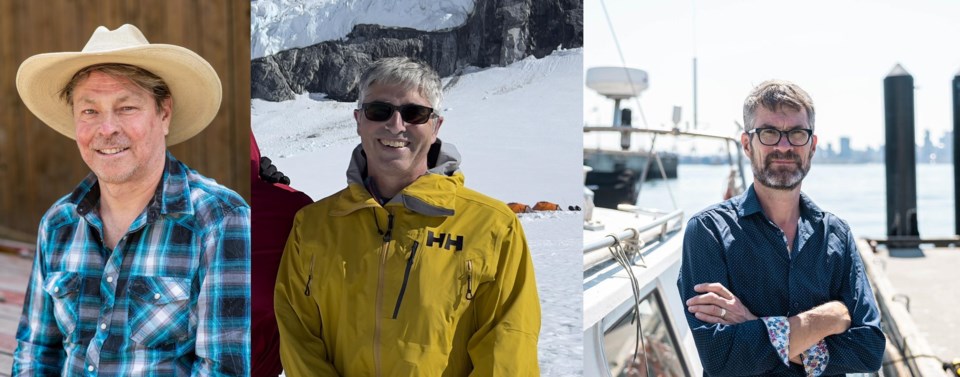A trio of speakers will trace the path of water through Whistler’s backcountry to the ocean this Thursday, drawing connections between shrinking glaciers, rising contaminants and the need for hope-fuelled climate action.
“Healthy Watersheds: From Glaciers to the Sea” marks the final event of the Whistler Institute’s winter speaker series. Hosted in partnership with the Whistler Lakes Conservation Foundation, the evening brings together a panel of experts to share insights rooted in science, Indigenous knowledge and lived experience.
Dr. Brian Menounos, a UNBC professor and former Canada Research Chair in Glacier Change, will open the conversation with the latest findings from the Geological Survey of Canada. “In Western Canada, we’ve seen 23 per cent of total glacier volume disappear since 2000,” he said. “That’s one quarter of an important water resource that supplements streams when the snowpack is depleted.”
Beyond reduced freshwater supply, Menounos said glacial retreat also increases the risk of outburst floods and landslides. While his research focuses on the role of glaciers in moderating climate and sustaining salmon-bearing streams, he emphasized that local communities like Whistler are not powerless. “We all have a role to play,” he said. “People like beautiful, ice-clad mountains. And it’s a lost legacy to lose that.”
Joining the panel is Dr. Peter Ross, senior scientist and co-founder of the Healthy Waters program. Ross will shift the lens downstream, highlighting how pollutants from roads, yards and even windshield washer fluid enter freshwater systems. “We’ll start up in glacial snowpack and go down through streams, rivers and lakes,” Ross said. “As snowmelt transitions through the built environment, we see evidence of human activities—cosmetic pesticides, Teflon-based chemicals, pharmaceuticals.”
Ross’ work involves screening for more than 600 contaminants in local waterways—far beyond what typical agencies test for. He sees potential in small-scale solutions: restoring riparian zones with native vegetation, filtering stormwater through bioswales and wetlands, and strengthening regulations around wastewater treatment.
“I explore bad news so we can create good news,” he said. “That means empowering local action, helping people understand the impact of everyday decisions, and ensuring data translates into protection for fish habitat and recreational waters.”
Michael Blackstock will close the evening with a call for an attitude shift through the lens of Blue Ecology—a framework he developed after decades working in forestry, policy negotiation and Indigenous-led environmental restoration.
“The dominant attitude has been techno-optimism,” said Blackstock, a Gitxsan knowledge holder. “There’s value in science, but we’re only using half of our potential. Blue Ecology balances the heart and mind.”
Rather than look to global summits for solutions, Blackstock believes climate resilience will emerge from local leadership and community-rooted action. “Whistler has the right people, the right industries, and sits on the urban-wild interface,” he said. “Others are looking for hope. If they can come somewhere and walk a path of hope—that’s a new dimension of tourism.”
The event will be co-hosted by Lynn Mandziuk and Mandy Rousseau and is expected to sell out. Ross said his team’s mobile lab “Tracker” will be parked onsite as a tool for education and community engagement.
“We’re trying to bring the lab to the field,” he said. “First Nations partners have made it clear: don’t just come in, collect samples, and disappear. Show up, share, and help build capacity.”
Tickets for the April 17 event are available through whistlerinstitute.com.




